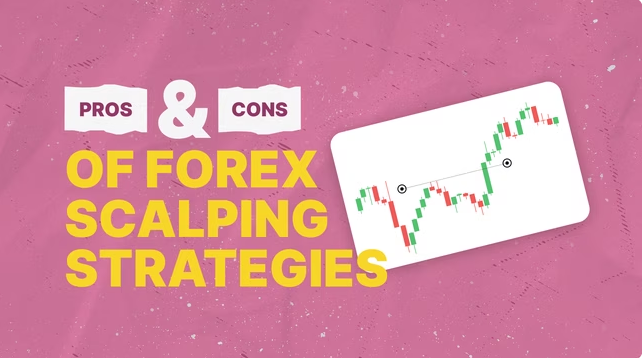What is Scalping in Forex? Pros and Cons
In the fast-moving world of forex trading, scalping is one of the most talked-about strategies. It’s fast, intense, and potentially profitable but it’s not for everyone. Some traders love the thrill of quick trades, while others find it stressful and overwhelming.
So what exactly is day trading forex? How does it work? And is it right for you?
In this blog post, we’ll break down the definition of forex day trading, how it works, and the pros and cons you need to consider before diving in.
⚡ What is Scalping in Forex?
Day trading is a short-term trading strategy where traders aim to make small profits from quick trades, usually within minutes sometimes even seconds. Scalpers open and close multiple trades throughout the day, trying to “scalp” a few pips at a time from price fluctuations.
Key characteristics:
-
Trades last from seconds to a few minutes
-
Focus is on high trade frequency and tight profit targets
-
Often used on lower timeframes (e.g., 1-minute, 5-minute charts)
-
Usually involves major currency pairs with high liquidity (like EUR/USD, GBP/USD, USD/JPY)
The goal of scalping isn’t big wins it’s consistent small gains that add up.
How Does Forex day trading Work?
Scalpers rely on:
-
Speedy execution
-
Low spreads
-
High market liquidity
-
Technical indicators and price action
Example:
A scalper may spot a breakout pattern on the 1-minute chart and quickly enter a trade aiming to grab 5–10 pips, using tight stop-loss and take-profit orders.
Scalping often involves dozens or even hundreds of trades per day, and success depends on precision, focus, and discipline.
✅ Pros of Forex Scalping
1. Quick Returns
Scalping allows traders to potentially generate profits within minutes — appealing for those who prefer fast-paced action.
2. Plenty of Trading Opportunities
Lower timeframes offer more setups during the day, meaning more chances to trade compared to swing or position trading.
3. Limited Exposure to Market Risk
Because trades are open for a short time, scalpers avoid overnight risks and sudden news shocks.
4. Great in Sideways Markets
While swing traders struggle during low-volatility periods, scalpers can still profit from small price movements.
❌ Cons of Forex Scalping
1. Time-Intensive
Scalping requires full attention and focus. You may need to spend hours glued to your screen.
2. High Transaction Costs
Since scalping involves many trades, spread and commission costs can quickly add up and eat into your profits especially with a high-frequency approach.
3. Emotionally Demanding
Scalping can be stressful. A single mistake or hesitation could wipe out the gains from several winning trades.
4. Requires Fast Execution
You’ll need a reliable broker with low spreads, fast execution, and ideally a VPS or low-latency setup if you’re using expert advisors (EAs).
Tools and Tips for Scalping Success
-
Use a low-spread ECN broker
-
Trade during high-liquidity sessions (e.g., London or New York)
-
Stick to major currency pairs
-
Use tools like moving averages, Bollinger Bands, or stochastic indicators
-
Keep a trading journal to track wins, losses, and patterns
-
Consider using a demo account to practice before risking real money
Is Scalping Right for You?
Scalping might be a good fit if:
-
You enjoy fast decision-making
-
You can stay focused for long periods
-
You’re disciplined and can handle stress
-
You have access to a fast, reliable trading platform
It may not be ideal if:
-
You prefer calm, long-term strategies
-
You don’t have time to monitor trades closely
-
You’re new to trading and still learning the basics
Final Thoughts
Scalping is one of the most aggressive and fast-paced forex strategies out there. It can deliver results quickly but only for traders who are well-prepared, disciplined, and equipped with the right tools.


